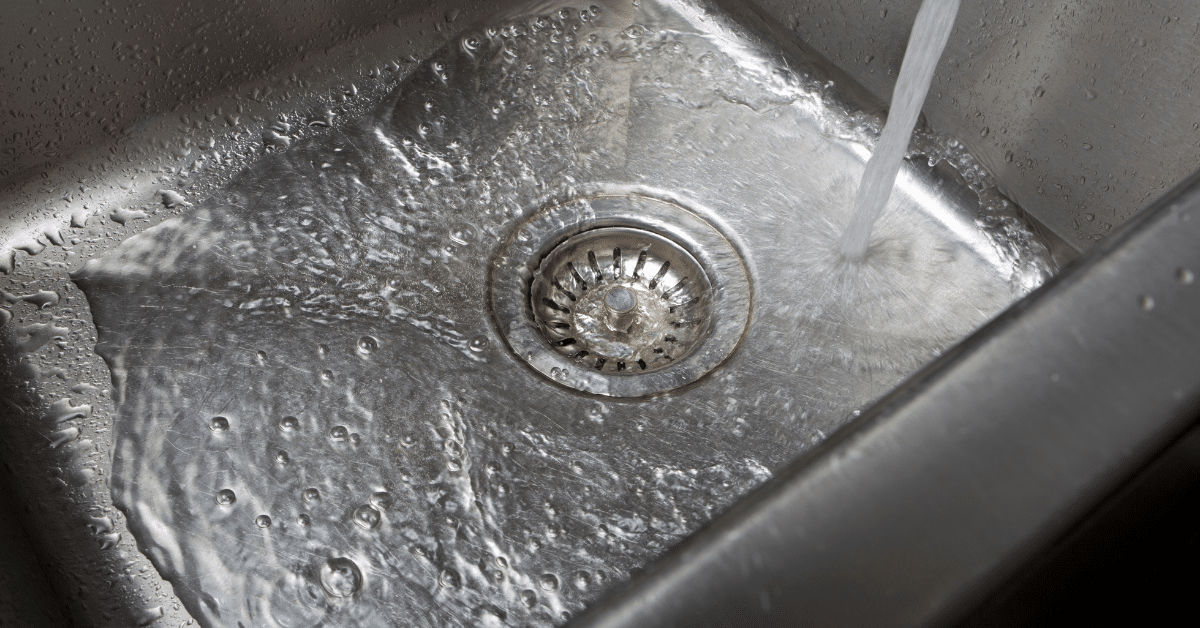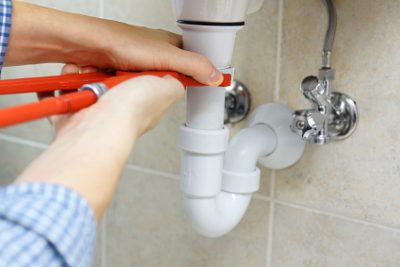Quick Ways To Resolve A Slow-Draining Sink
Quick Ways To Resolve A Slow-Draining Sink
Blog Article
What are your thoughts regarding 4 Tips to Fix a Slow Draining Sink?

Introduction
We've all been there: You're cleaning your teeth or washing your hands, and you observe the water merging in the sink. Instead of swiftly swirling down the drain, it remains, transforming your once-refreshing morning routine into a mini overload scene. A slow-draining sink isn't just frustrating; it's typically a sign of bigger plumbing problems lurking beneath the surface. The bright side is that many slow-draining sinks can be fixed with a little know-how, a couple of standard tools, and some persistence. Ready to tackle this task head-on? Allow's roll up our sleeves and dive right in.
Comprehending the Reasons For a Slow-Draining Sink
Prior to you begin poking around in your pipes, it aids to recognize what could be creating the downturn. Understanding the root cause makes it much easier to select the appropriate fix.
Common Perpetrators Behind Slow Water Drainage
So, what's obstructing points up? Normally, it's a combination of daily particles-- believe hair, soap residue, toothpaste deposit, and remaining food fragments. Over time, these tiny bits accumulate and hold on to the pipeline walls, slowly tightening the passage and making it harder for water to travel through. Sometimes, natural resource from difficult water can additionally add to the gunk, producing the best tornado for persistent clogs.
When is it Time to Act?
If you see the water draining slower than normal, it's a great concept to intervene quicker instead of later. Waiting also long could bring about complete obstructions, undesirable smells, or perhaps pipe damages. If the water takes more than a couple of seconds to clear out after shutting off the tap, consider it a red flag and prepare yourself to place on your do it yourself hat.
Devices and Materials You'll Require
The right devices make all the difference. Luckily, you won't need a totally stocked plumbing technician's van to do the job.
Crucial Tools for DIY Fixes
A bettor is your go-to starting factor. A tiny, sink-sized bettor creates suction that can remove small clogs. For more persistent obstructions, a drain snake (sometimes called a plumbing technician's auger) functions marvels. A set of handwear covers, a flashlight, and perhaps a pair of protective safety glasses are additionally handy.
Recommended Cleaning Solutions
Light meal soap and hot water can assist break down oily build-up. A combination of cooking soda and vinegar is a tried and true natural remedy, and chemical cleansers provide a more environment-friendly approach. Keep chemical drainpipe cleansers as a last hope, as they can be extreme on your pipes.
Security First: Safety Measures and Prep work
Prior to you launch into unclogging setting, think about safety. You're handling potentially dirty water and debris, so slip on a set of gloves. If you're making use of chemical cleansers, make sure the area is well-ventilated and comply with the guidelines on the label.
Protective Equipment and Office Configuration
Set some old towels or rags around the sink area to capture sprinkles. Clear away any kind of things that could get in your way, like soap dispensers or tooth brush holders. Ensure you have great lights-- get a flashlight if needed.
Step-by-Step Guide to Taking Care Of a Slow-Draining Sink
Now, allow's enter into the nitty-gritty. This detailed process will lead you through basic techniques to recover your sink's drain.
Step 1: Get Rid Of and Clean the Stopper
Usually, the stopper (that small plug you lower to block water) is the initial culprit. Remove it carefully and wipe any kind of hair or substance entraped around its base. Rinse it thoroughly prior to placing it back in position.
Step 2: Utilize a Bettor to Dislodge Particles
Got that plunger all set? Position it over the drain and provide it a few company pumps. The concept is to develop suction that can loosen up any kind of clog. If you see littles particles floating up, you're on the best track.
Step 3: Attempt a Drain Serpent or Wire Hanger
If the plunger does not work, it's time to bring out the drainpipe serpent. Delicately feed it into the drain and twist as you go. You may really feel some resistance-- that's most likely the obstruction. Keep twisting and pulling till you eliminate the obstruction. If you do not have a drainpipe serpent, an aligned wire hanger can operate in a pinch.
Tip 4: Apply a DIY Drainpipe Cleanser
An all-natural cleaner made from baking soft drink and vinegar can break down residual crud. Pour half a mug of cooking soft drink right into the drainpipe, adhered to by half a mug of vinegar. Allow it fizz for about 15 mins, after that flush with hot water. This chemical reaction often does marvels for minor obstructions.
Tip 5: Reconstruct and Examine the Sink
Put whatever back with each other and run the tap. Does the water currently swirl away at a decent speed? If yes, give on your own a pat on the back. Otherwise, do not misery-- there are still a few more tricks up your sleeve.
Alternate Techniques for Stubborn Clogs
Not all clogs are developed equal. If your sink still declines to comply, think about these different remedies.
Baking Soda and Vinegar Approach
We currently discussed this, yet it deserves keeping in mind once more. This mild, green method is safer than chemical cleaners and usually fairly reliable.
Chemical Drainpipe Cleansers
Enzyme-based cleansers make use of all-natural microorganisms to digest raw material. They're a superb choice if you're seeking to prevent harsh chemicals. Simply remember, they may take a bit longer to work their magic.
Chemical Drainpipe Cleaning Company: Advantages And Disadvantages
Chemical cleansers can blow up with hard blockages fast, however they're not without drawbacks. They can generate heat and fumes, damages pipelines if utilized excessively, and pose environmental threats. Utilize them sparingly, and constantly follow the instructions meticulously.
Safety Nets to Maintain Your Sink Flowing
Avoidance is the most effective treatment. By adopting a couple of simple habits, you can keep your sink from slowing down to begin with.
Normal Cleaning Up Routines
Clean down the sink container and fixture location routinely. Remove hair or food fragments before they have an opportunity to wash down the drainpipe.
Preventing Damaging Materials Down The Tubes
Hesitate prior to unloading coffee premises, oil, or coarse veggie scraps down the sink. These wrongdoers cling to pipe walls, creating obstructions over time.
Routine Upkeep Checks
Schedule a quick month-to-month assessment. Run hot water through the sink for a few minutes, focusing on the flow. If it seems slow-moving, act fast before it ends up being a full-on blockage.
When to Call a Professional Plumber
In some cases, despite exactly how difficult you attempt, that obstruct just won't move. That's when it's time to bring in the pros.
Indications That Show an Extra Severe Issue
If your sink drains pipes gradually in spite of multiple efforts, or if you notice water backing up in various other components (like your shower or toilet), you might have an extra significant pipes problem hiding deeper in the system.
Stabilizing DIY Efforts with Professional Help
While DIY can save you money and use a feeling of success, there's no pity in calling a specialist. A professional plumber can evaluate your whole plumbing arrangement, ensuring there's no underlying damage or long-term problem that might cost you a lot more in the future.
Contrasting Costs and Long-Term Solutions
Prior to making a decision, take into consideration the big picture. An inexpensive, quick fix may resolve the trouble temporarily, however investing in a more permanent service can save you cash and tension in the future.
Weighing the Costs of DIY vs. Expert Fixes
Do it yourself solutions commonly cost little greater than the rate of a bettor or a bottle of cooking soft drink. Expert solutions, on the other hand, come with a price tag however may stop repetitive issues and expensive repair work later on.
Purchasing High Quality Fixtures and Upgrades
If your sink's layout contributes to regular blockages, it could be worth updating to higher-quality fixtures or modifying the pipes design. Consider this a financial investment in your house's performance and comfort.
Conclusion
A slow-draining sink can seem like a minor irritability, but it's often an indication that your pipes requires a little TLC. By comprehending the source, utilizing the right devices and methods, and dedicating to straightforward safety nets, you can keep your sink streaming easily. And when all else fails, never ever think twice to employ an expert-- your home's plumbing is worth the financial investment in treatment and maintenance.
Three Common Ways to Fix a Slow Drain
Baking Soda Method
Boil a full pot of water. Measure out cup of baking soda and pour it down the drain. Then take cup of the magical cleansing substance known as white vinegar and drop that down there too. Allow the mixture to fizz in the drain for five minutes as the vinegar and baking soda combine. Now dump in that whole pot of boiling water. This combination of cleaning substances should clear out anything that is causing your sink to drain slowly. If it doesn t...
Zip-It
If the baking soda method doesn t clear out your drain, it may be because a significant amount of hair and/or other debris has collected there and you need to remove it. Purchase a Zip-It tool at any home improvement or hardware store and insert it into your drain. It will catch any collected hair or debris that s blocking the flow of water. Pull it out. If it s got a big clump of hair, etc. on the end, you ve probably got your culprit.
Drain Cleaner
If these methods don t work, there is the standard drain cleaner that you can also buy in a hardware store or even your local grocery store. It s better if you can use a household solution, but these drain cleaners often work in a pinch. They re very simple to use. You generally just dump them in your drain and wait. If even this method is not effective, it may be time to call the plumber.
https://www.mrrooter.com/oneida/about-us/blog/2017/july/three-common-ways-to-fix-a-slow-drain/

I'm certainly very interested by and I really hope you liked our piece. I beg you take a moment to distribute this post if you appreciated it. Thanks for being here. Kindly visit our website back soon.
Click Here Report this page